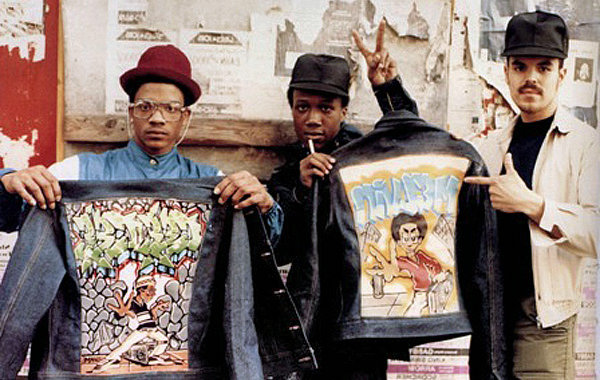Kelly Anderson’s My Brooklyn gives us the history of New York’s famous district
Everyone has heard of or seen Brooklyn one way or the other. Some consider it the kingdom of Goodfellas’ infamous protagonist, or as the home of the enticing main character of Spike Lee’s first film, She’s Gotta Have It. Many remember the epic car chase of The French Connection as well. One thing is sure though, most of us won’t ever truly know this neighbourhood as closely as the people in this documentary.
My Brooklyn is a love testimony to one of most culturally diverse neighbourhoods of North America. It also shows an infuriating display of what could be described as brutal gentrification. Kelly Anderson, a Canadian documentary director and New York resident for many years, analyzes for us the contemporary metamorphosis that Brooklyn went through. She explains to us how and why iconic Brooklyn became — notably because of urban-policy gurus (the Bloomberg administration and a few wealthy real estate developers) — another bourgeois-friendly downtown area.

More precisely, My Brooklyn focuses on the transformation of the previously effervescent shopping district and traditional meeting place for Brooklynites: Fulton Street Mall. Small businesses that were an integral part of a strongly rooted community were ordered to desist and vacate the spot they occupied for 20 years. The proliferation of generic multinational shops replaced the different and more personal businesses that gave its personality to the area. All this for the purpose of “diversifying the range of users” of this shopping area.The possibility for affordable housing was tossed aside to give place to high luxury condos.
Sadly, these transformations made Brooklyn an unfamiliar and harsh new environment. Those who gave Brooklyn its distinctive soul and heart could not live their day-to-day lives anymore.
In this documentary, Anderson shares with us the various reasons for her profound dedication to what her family likes to call home. She also follows the money trail of this major reappropriation of her neighbourhood by the prosperous who left this area during a shameful past of segregation. The result is a thoughtful essay on a vibrant community trying to defend a place they cherish. It is an example of why change is not always for the best. It is also a study of serious economic and social problems portraying the clash of two groups belonging to different classes and races.
The plethora of characters that Anderson makes us meet gives us an outlook of their Brooklyn and the special connections that they have with this neighbourhood.
Anderson gives viewers a detailed but comprehensive amount of information on their history and allows us to understand not only why those people want to keep their Brooklyn like it’s always been, but also how this metamorphosis is mostly the result of greediness.
Another interesting feature of the movie is that it is transparent: the director is on the side of the oppressed. Nonetheless she admits that some of the changes might actually appeal to a part of her and that she was of the first wave of “gentrifiers” in Brooklyn.
Anderson also tries to show us that for some regular people, this neighbourhood needs to be modernized and gentrified — especially if the neighbourhood is expecting to attract another type of customer (by selling higher-end goods). However, sometimes you cannot help but feel awkward listening to those slightly or greatly snobbish interviewees and wonder if they ever went to this area in the first place or if they could ever understand what Brooklyn is really about. What we can be sure of though is that Anderson clearly belongs in this neighbourhood. Her affection for the area transpires throughout the whole movie and almost makes you want to move to this now-extraordinarily overpriced region of New York City. In the end this movie will make you see all those condo projects in a different light, like those that appeared around our own city in the last few years. Are those standardized, unvarying, new buildings better than the old, slightly shady and kitschy commercial edifices from before? Thoughts like these are erected in the movie, and bring the issue surprisingly close to home. We can only hope, though, that gentrification advocates won’t sell the soul of our beloved Montreal.
My Brooklyn premieres in Quebec as part of Cinema Politica on Monday, March 17 at 7 p.m., where director Kelly Anderson will be present. For more information visit cinemapolitica.org.



